Megaton Musashi W: Wired (Nintendo Switch) Review
By Coller Entragian  06.06.2024
06.06.2024
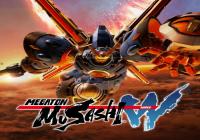
Level-5, once a prolific developer known for titles like Dark Cloud 2 and Dragon Quest VIII, has seen a decline in mainstream popularity in recent years. This decline coincides with the company's strategic shift towards transmedia projects. Level-5 has increasingly focused on creating franchises that span multiple media formats, including video games, anime, manga, and even live performances. This approach, exemplified by the Professor Layton series, has resulted in a greater emphasis on the Japanese domestic market. Western releases of certain games have been delayed or entirely cancelled, such as the original version of Megaton Musashi. Megaton Musashi W: Wired, a revised version of the 2021 PlayStation 4 title with a newly released anime in the West, presents an opportunity for Level-5 to regain a foothold in the Western market. Is another revision necessary for Level-5 to finally regain its success in the West like it once did in the 2000s? Find out in this Megaton Musashi W: Wired review!
Megaton Musashi W: Wired features a narrative typical of the Shonen anime genre. The protagonist, Yamato, is a hot-headed teenager who excels at fighting and spends much of his time training. The story takes a dramatic turn when Yamato discovers his reality is a simulation and humanity is on the brink of extinction. Yamato's brash personality makes him a prime candidate to pilot a giant mech called a ROGUE to combat the alien Draktors. The game depicts a post-apocalyptic scenario where remnants of humanity reside in a simulated world, unaware of the true state of the planet. Earth has been transformed into a giant donut-shaped structure by the aliens to exploit its core energy.
The plot follows a predictable Shonen formula; Yamato and his companions become mech pilots, battling alien invaders. The narrative incorporates elements like camaraderie, with potential romantic interests emerging amongst the cast. The game heavily utilizes anime cutscenes, potentially recycled from a related anime series. These high-quality scenes enhance the presentation. Familiar anime tropes and references are present throughout, particularly regarding classic mecha series, likely to appeal to fans. Players can acquire and utilize parts from iconic mecha such as Getter Robo and Mazinger Z to execute signature attacks. While the story is functional, it is derivative, lacking the depth and emotional impact of titles like 13 Sentinels. The narrative prioritises catering to a young Japanese audience and avoids mature themes or complex character development.
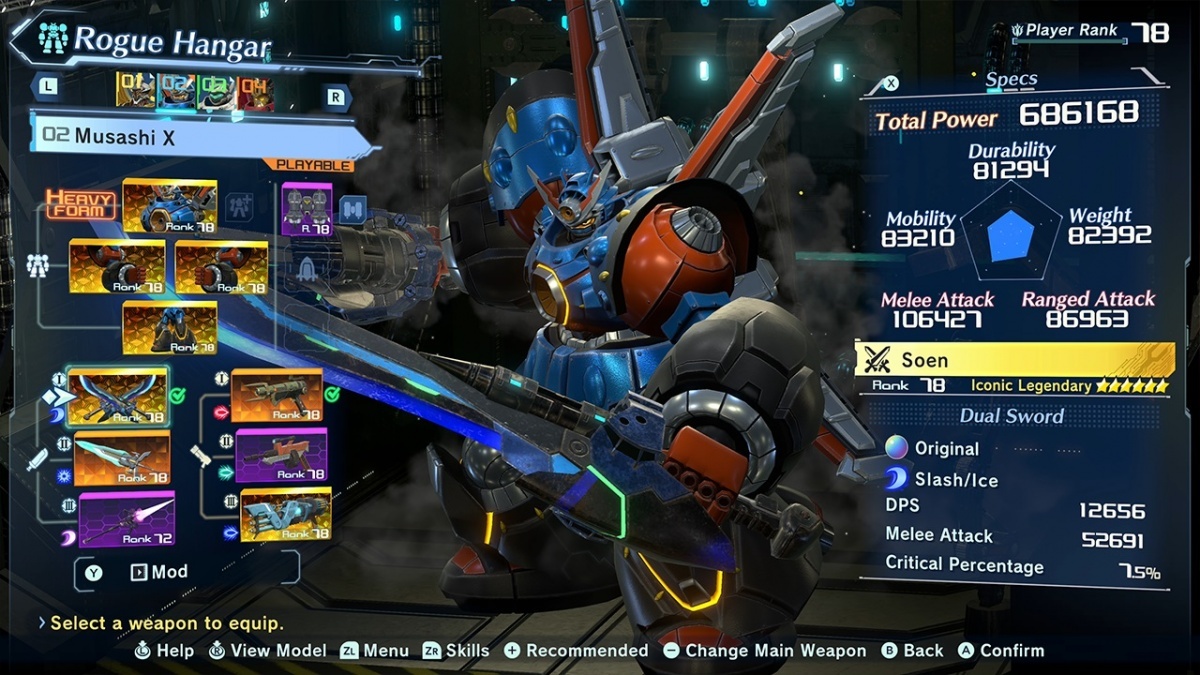
The game's audio focuses on the sounds of mech combat, potentially overwhelming the background music. Notably, the game lacks an English language option. No English voice acting presents a significant hurdle. The target demographic, likely younger gamers, may find the extensive amount of text to be tiresome. An English voice track, despite the potentially "simple" story, could have enhanced engagement by allowing players to absorb the narrative more passively during non-animated scenes.
The emphasis on plot and story-gated content, including co-op missions, necessitates a strong grasp of the narrative. Unfortunately, the absence of English voice acting hinders this aspect of the experience. Piloting a ROGUE mech offers a satisfying and visually striking combat experience. The gameplay prioritises speed over realism, resulting in mechs that feel more akin to action figures than colossal machines. However, this trade-off succeeds in creating exhilarating battles reminiscent of a high-octane Shonen anime. The large-scale destruction, featuring cityscapes reduced to rubble by mech clashes, further amplifies this effect.
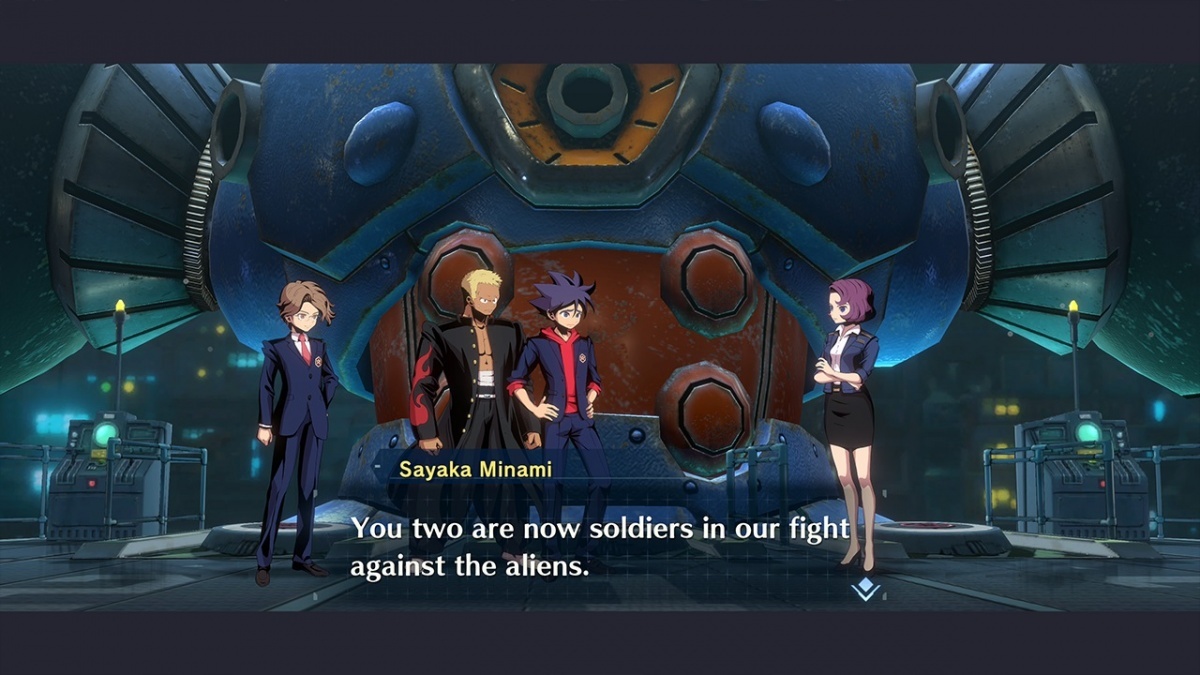
ROGUEs boast a diverse arsenal of six weapons, split between melee and ranged options. Players can also equip hotkey-activated special attacks fuelled by a regenerating gauge. While the combat mechanics themselves are accessible, the true spectacle lies in the bombastic animations and visual effects.
Megaton Musashi W: Wired falls short of being a top-tier action title due to its focus on loot mechanics. The experience heavily incentivises constant equipment acquisition and disposal, potentially feeling wasteful to players. The early hours offer a gentle difficulty curve, with a significant challenge ramp-up only occurring once the difficulty adjustment option becomes available. Before this point, most battles feel trivial. Conversely, later encounters become endurance tests due to inflated enemy health pools. Success hinges more on acquiring powerful gear than mastering the combat system.
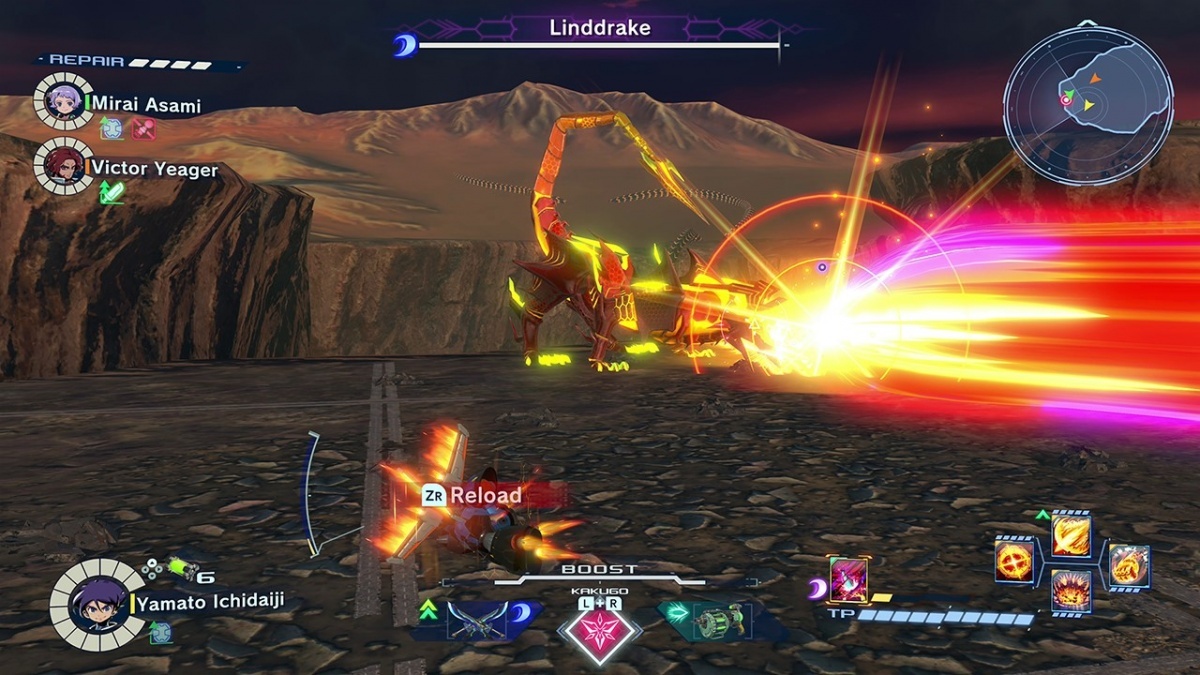
The tedious grind for loot is a significant turn-off. Even in co-op mode, players risk encountering overpowered teammates who decimate enemies before others can meaningfully participate. Mission variety suffers in Megaton Musashi W: Wired. Even in co-op, missions are repurposed from the main story and adhere to a repetitive formula. While the short encounters might be suitable for portable play, they lack the depth to hold players' attention on a larger screen.
The game boasts an impressive array of customisation options. However, after extended play, the sheer volume of stats can become overwhelming. Players may find themselves resorting to an auto-equip function to avoid the tedious task of manually comparing weapons and parts between missions. While the extensive customisation offers freedom, the impact of individual choices feels diluted. Megaton Musashi W: Wired offers a sprawling skill tree and diverse pilot selection, again granting players immense customisation potential. This depth comes at the cost of a significant time investment, with gameplay heavily reliant on mechanics commonly found in mobile titles: extensive grinding, battle passes, and daily missions. Players who thrive on such systems will find themselves right at home in the world of Megaton Musashi W: Wired.
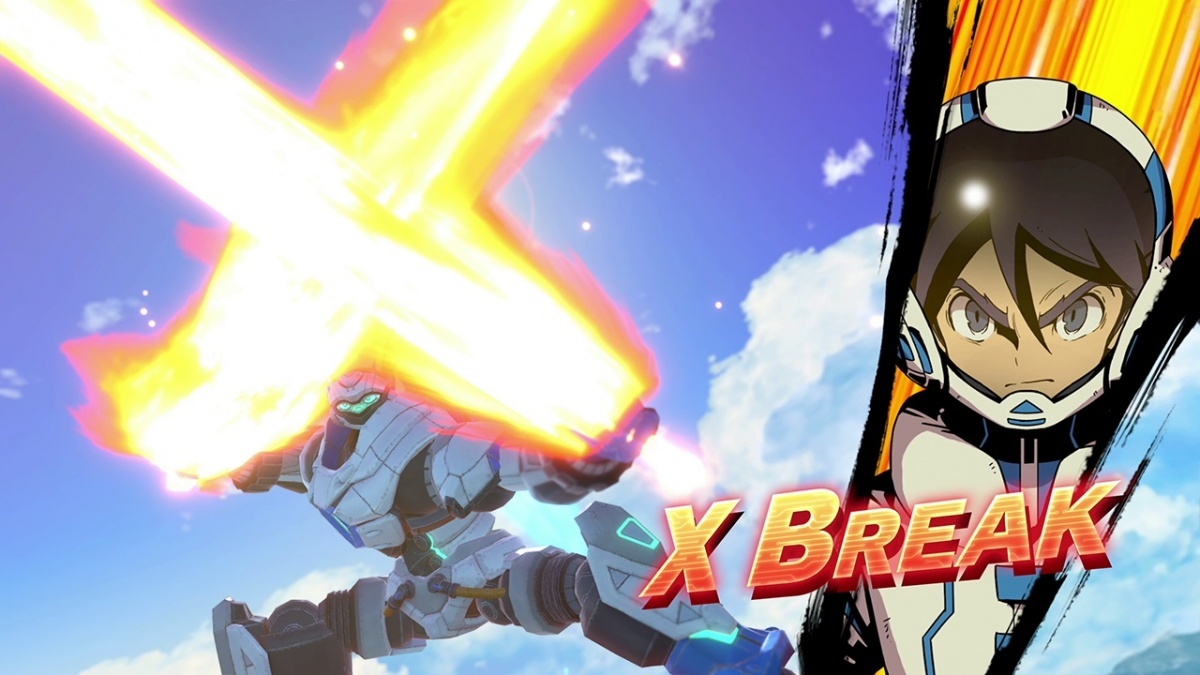
Cubed3 Rating
Good
The focus on online elements positions Megaton Musashi W: Wired as a potential favourite for mobile gamers accustomed to online interaction. While solo and offline play are available, the core experience lies in the extensive online grind alongside other players who prioritise efficiency and rapid mission completion for loot acquisition. The narrative in Megaton Musashi W: Wired may not resonate with all audiences, lacking complexity and English language voice acting. However, it compensates with a focus on bombastic action and over-the-top brawls, reminiscent of the live-action Transformers films. This emphasis on explosive spectacle may hold appeal for players seeking a purely action-oriented experience. Megaton Musashi W: Wired offers a flashy combat experience hampered by a repetitive structure, excessive grinding, and a weak localisation effort. While the frenetic action and customisation may appeal to some, the lack of depth and focus on loot acquisition limit the game's overall appeal.
Comments
Comments are currently disabled

 Sign In
Sign In Game Details
Game Details
 Out now
Out now  Out now
Out now  Out now
Out now  Out now
Out now  Subscribe to this topic
Subscribe to this topic Features
Features





 Top
Top

